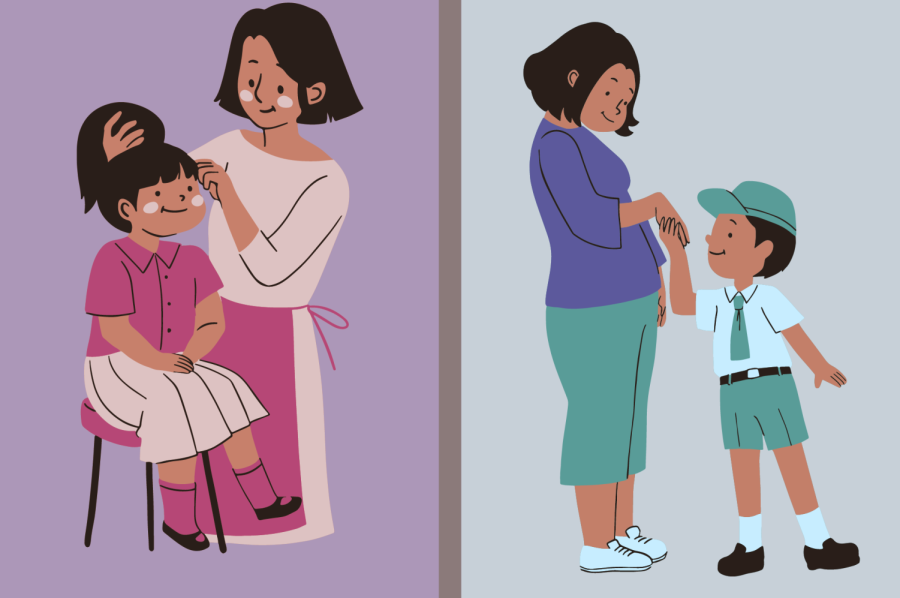Column: Equal parenting standards should be common sense
The different ways we raise daughters vs sons can have major impacts on society.
March 24, 2022
Any parent would admit to you there is a difference between raising a boy versus raising a girl.
A double standard is defined by Webster’s dictionary as “two things which are the same are measured by different standards,” meaning that we evaluate the same behavior between men and women differently.
Globally, sons are favored over daughters for countless reasons: “common wisdom is that the preference for sons is motivated by economic, religious, social and emotional desires and norms that favor males and make females less desirable: Parents expect sons — but not daughters — to provide financial and emotional care, especially in their old age; sons add to family wealth and property,” claims the United Nations Population Fund.
This is not a new idea. It has been in our subconscious and debated for centuries, with the women’s rights movement on the rise in the last couple of decades.
The Social Science Research Journal published a study on double standards revealing “substantial gender differences in parental attitudes toward their children.”
Most parents treat their children differently based on gender. It is an unfair bias that needs to be corrected. If siblings are growing up seeing the differences in the way they are treated at home, why wouldn’t they assume that type of mentality is normal?
Communications professor Dr. Karla Padron believes not everyone wants to accept treating their children differently based on gender as the truth.
Padron explains the biological social constructs we have today. The best example we have of this today is the men in Ukraine ages 18 to 60 who are expected to stay and fight. They are viewed as the protectors of their land, women and children. “There is nothing biological that says men have to protect anybody. They have been given that role,” Dr. Padron said. “We have also only had male presidents. We do have political figures that are women, but the majority are men. We assign power to men and that translates to how we treat children.”
We assign power to men and that translates to how we treat children.
— Dr. Karla Padron
We treat our sons and daughters differently because we are making decisions based on what we already know and believe. Believing the double standard held to men and women, it’s being reflected in how we raise our kids.
We are also telling young girls to be careful, be modest, don’t leave a drink unattended, don’t go out alone, etc. while still giving the message that boys will be boys.
Many parents will tell you that it is much easier to raise a boy than to raise a girl. “I do think things are changing because women are moving that conversation forward, but if parents are claiming it’s easier to raise their son, it’s probably because it is still a man’s world,” Dr. Padron said.
All these ideas are reflected in parenting; how much we might worry and be protective over our daughters, but not as much as our sons. They grow up with this idea that is then hard to grow out of and is reflected throughout society. If this gender bias is a constant at home, why should they grow up to expect to be treated any differently?
As a member of society and a parent, it is your job to stand up to such actions and break the cycle in your household.














